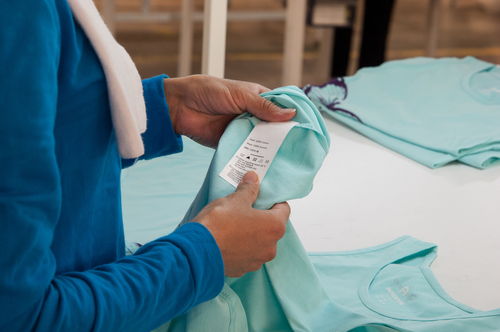With Christmas fast approaching, a group of shoppers is queuing outside their favorite store. As soon as the clock strikes 9, the shutters open and the shoppers rush in, flooding the aisles. Ugg boots, socks, non-slip socks, and snow boots are all flying off the shelves. Retailers, manufacturers, and distributors couldn’t be happier with this surge in consumer spending.
However, one particular company, XYZ Shoes, has been left behind. Prior to shipping their Ugg boots, they discovered a major defect originating in their dyeing process, whereby each boot in a pair was a different shade of brown.
Customer satisfaction and brand reputation would have suffered if those defective pairs were shipped out to retailers. To make matters worse, there wasn’t enough time to make any changes, meaning XYZ Shoes will now miss the peak of the winter season.
To avoid the horror scenario of XYZ Shoes, you should enlist the services of a Third-party Inspector (TPI) to conduct inspections earlier in the production cycle. There are various inspection services that TPIs can provide in addition to Pre-shipment Inspection (PSIs). Here are 3 of the most common:
(i) Raw Material Incoming Check – An inspection carried out before production even begins in order to determine whether raw materials are meeting quality specifications
(ii) Initial Production Check (IPI) – conducted when 10-20% of your inventory has been produced. This helps verify first run quality requirements
(iii) During Production Check (DUPRO) – Typically carried out when goods production is at 40-50% in order to ensure that quality benchmarks continue to be met
Raw Material Incoming Check
You want to start strong.
However, when raw materials are below quality benchmarks, your production cycle gets off on the wrong foot. This can lead to minor, major, and even critical defects.
Let’s say that you produce winter hiking boots. Leather for the main upper shoe, rubber for the outsole, and synthetic fabrics for the lining of the shoe are just a few of the many raw materials you will need. You must ensure that the suppliers for each of these raw materials are meeting quality specifications. That’s hard enough when you are sourcing your goods from one supplier, let alone multiple suppliers.
If your leather is too thin, it may not provide the insulation necessary for a winter hiking boot. If your synthetic fabric lining is weak, it won’t be able to soak up perspiration from the inside of the shoe, which will stain the material of the main upper shoe. If your rubber sole is too soft, it won’t be suitable—or even safe for that matter—for snowy mountain terrains and other soft surfaces.
Enlisting the services of a TPI ensures that you don’t waste time and money procuring raw materials that are below par. This allows you to streamline production, setting the tone for the rest of your production process.
IPI and DUPRO
An IPI can help you isolate where things go wrong in the production process, helping you to implement corrective measures.
Let’s say that you discover that the adhesive used to cement silicone patches to your non-slip socks or slippers wasn’t hot enough before being applied. In this case, you can spot the exact point at which this happened and ensure that the adhesive is heated to the right temperature for the rest of the production cycle.
Now imagine that you’ve fixed the issue with your adhesive, but you find an issue with the colorfastness of your socks i.e. the color fades too easily. Knitted socks are usually yarn-dyed, meaning you will have to go all the way back to the beginning of the manufacturing process to perform corrective measures.
With DUPROs, you can pinpoint the source of this defect well before the pre-shipment phase. You will have time to test out other dyes or dyeing methods, streamlining production much as you can with IPIs and a Raw Material Incoming Check.
Carrying out IPIs and DUPROs will reduce the likelihood of defects, wastage, product recalls, and customer dissatisfaction while protecting your bottom line and your brand’s reputation.
Other Types of Winter Footwear
It might be winter, but that does not mean that shoppers are focused solely on insulating footwear. Certain types of fashionable boots can be worn in all seasons, and are especially popular in countries with warmer winters. Ugg boots are also sought-after, allowing consumers to blend fashion with function, although they cannot be worn in snowy conditions.
In the spirit of Christmas, how can we forget Santa boots? They might not be the most fashionable items on the market but are certainly a hit towards the end of the year.
Some of the most common quality issues with these and other types of footwear are incorrect sizing, asymmetry, and abrasion marks. IPIs and DUPROS can go a long way towards addressing these defects before it is too late to make changes to your production practices.
Ensuring that your winter footwear meets quality specifications can be a challenging and frustrating process. With its inspection services, InSpec by BV is perfectly positioned to help get your winter footwear to market ahead of the upcoming winter spike.







